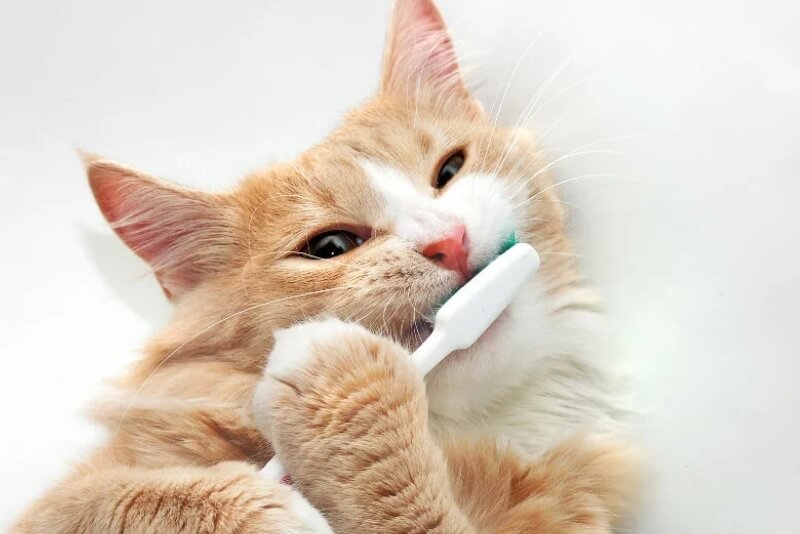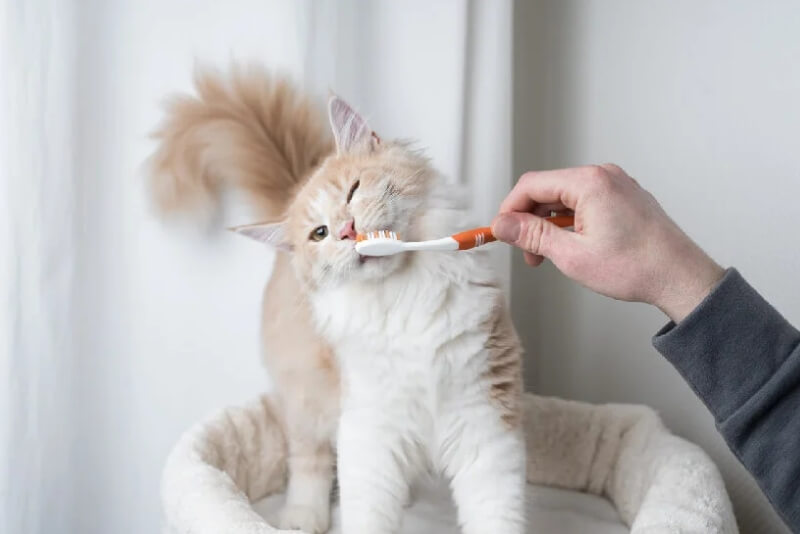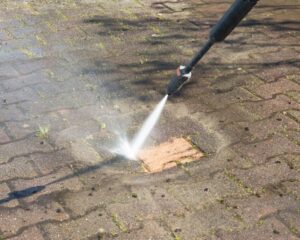
Feline stomatitis is a serious and potentially life-threatening condition that can affect cats of any age. It is a type of inflammatory oral disease that can cause severe pain and discomfort, as well as irreversible damage to the teeth and gums. It is important to be aware of the signs and symptoms of feline stomatitis and to seek veterinary advice as soon as possible if your cat is displaying any of these signs. In this article, we will look at what feline stomatitis is, the symptoms, causes, and treatment options, as well as how to keep your cat’s teeth healthy to prevent this condition from occurring in the first place.
What is Feline Stomatitis?
Feline stomatitis is a type of oral inflammation that affects the gums, tongue, and other soft tissues of the mouth. It is characterized by an excessive inflammatory response to certain triggers, including bacteria, viruses, fungi, trauma, allergies, and more. The inflammation can cause severe pain and discomfort, as well as swelling in the mouth. It is a serious condition that can lead to permanent damage to the teeth and gums if left untreated.
The condition can be classified into two types: chronic and acute. Chronic feline stomatitis is characterized by persistent inflammation of the gums and mouth, while acute feline stomatitis is characterized by an acute onset of inflammation and pain.
Symptoms of Feline Stomatitis
The most common symptom of feline stomatitis is severe pain and discomfort in and around the mouth. Your cat may also experience difficulty eating, excessive drooling, pawing and licking of the mouth, bad breath, and abnormal behavior, such as hiding or aggression. You might also notice redness and swelling of the gums and tongue, and a significant decrease in appetite.
If your cat has feline stomatitis, you may also find that they are reluctant to allow you to inspect their mouth. This is due to the pain and discomfort that the condition causes. It is important to note that, in some cases, your cat may not show any signs of discomfort at all.
Causes of Feline Stomatitis
The exact cause of feline stomatitis is not yet known. However, it is thought to be caused by an overactive immune response to certain triggers, such as bacteria, viruses, fungi, trauma, allergies, and more. In some cases, it may be caused by a combination of these triggers.
Additionally, some cats may be genetically predisposed to the condition. It is important to note that the condition can affect cats of any age, though it is more common in older cats.
Treatment Options for Feline Stomatitis
Treatment for feline stomatitis will vary depending on the severity of the condition and the underlying cause. In mild cases, your veterinarian may recommend medications to reduce inflammation and pain, as well as antibiotics to treat any underlying infection.
In more severe cases, your veterinarian may recommend surgery to remove the affected tissue. This is usually done under general anesthesia and is usually successful in reducing pain and discomfort.
After surgery, your veterinarian may recommend a dental hygiene plan to help keep your cat’s teeth and gums healthy. This may include regular brushing, dental exams, and dental cleanings.
Dental Care for Cats With Feline Stomatitis
It is important to provide regular dental care to cats with feline stomatitis. This can help to prevent the condition from worsening and can even prevent the need for surgery.
The best way to provide dental care to cats with feline stomatitis is to start with a dental exam. During this exam, your veterinarian will be able to assess your cat’s dental health and determine if there are any signs of the condition.
After the exam, your veterinarian may recommend a dental cleaning. This is a procedure that removes plaque and tartar from your cat’s teeth, as well as any debris that may be causing irritation. It is important to note that this procedure should only be done by a qualified veterinarian, as it can be painful and can cause complications if done incorrectly.
In addition to regular dental cleanings, it is important to provide regular brushing and dental exams to cats with feline stomatitis. Brushing helps to remove plaque and tartar, as well as any debris that may be causing irritation. Regular dental exams can help to detect any changes in your cat’s dental health, as well as any signs of the condition.

Conclusion
Feline stomatitis is a serious and potentially life-threatening condition that can cause severe pain and discomfort, as well as irreversible damage to the teeth and gums. It is important to be aware of the signs and symptoms of the condition and to seek veterinary advice as soon as possible if your cat is displaying any of these signs. Additionally, it is important to provide regular dental care to cats with feline stomatitis to prevent the condition from worsening and to avoid the need for surgery.
If you think your cat may be suffering from feline stomatitis, contact Veterinary Dental Care immediately. They will be able to assess your cat’s dental health and recommend the best course of action for treating the condition. With proper care and treatment, your cat can make a full recovery and have a happy and healthy life.


















No Comments yet!